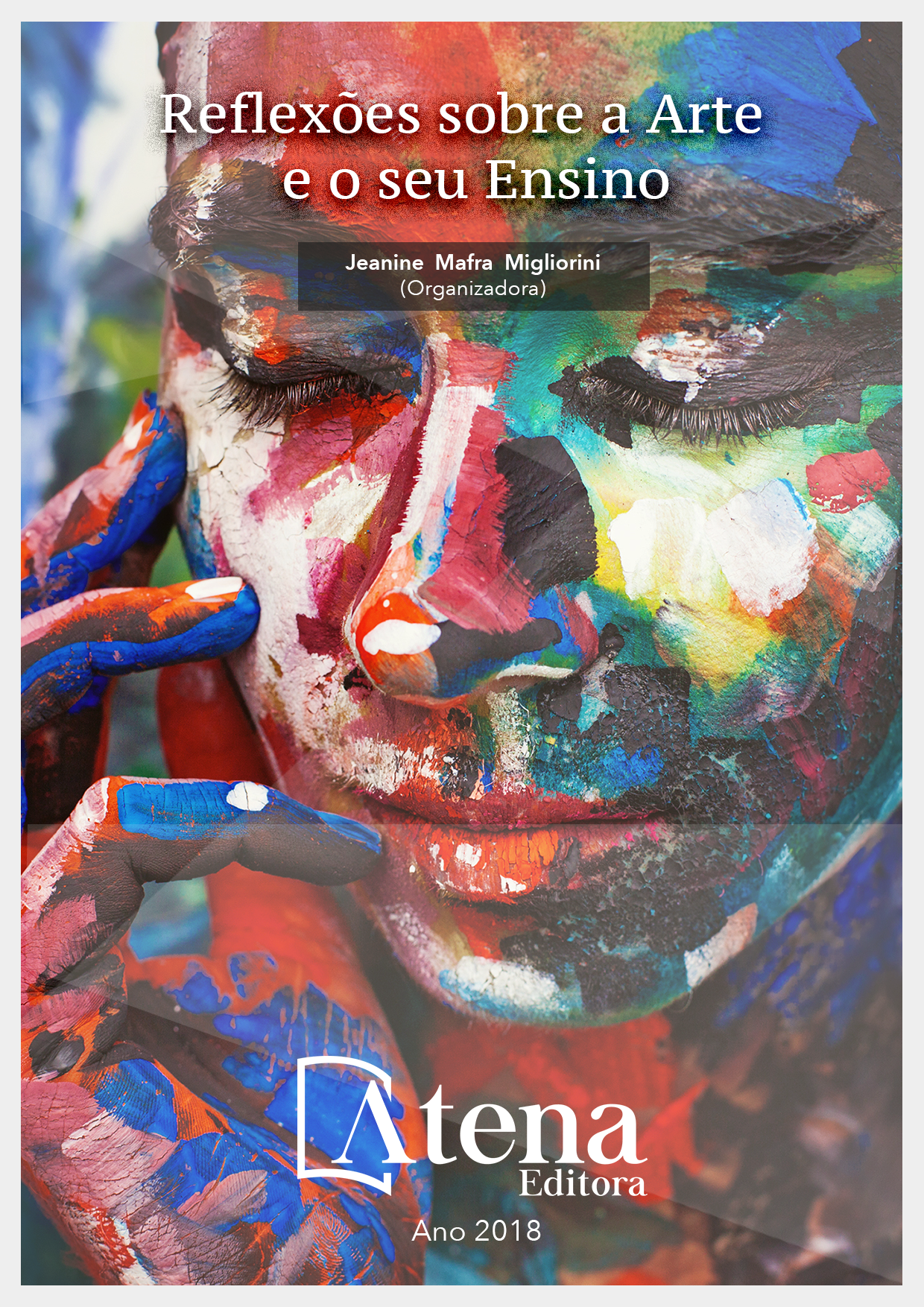
UMA VIVÊNCIA PLÁSTICA POR INTERMÉDIO DO MARCO – MUSEU DE ARTE CONTEMPORÂNEA DE MS
Há muito os museus deixaram de
ser apenas locais destinados exclusivamente
à conservação, restauração e salvaguarda
de obras de arte tornando-se locais de
fortalecimento da aprendizagem, socialização
do conhecimento, reeducação estética do
olhar. Sendo assim, os museus estimulam a
descoberta por um novo fazer e promovem
acesso às riquezas socialmente construídas.
O presente artigo pretende suscitar discussão
relativa ao ensino da arte e sua incursão na
educação não formal como laço a unir escola e
museu de arte para a tão conclamada formação
estética-cultural dos sujeitos. Para a consecução
desses objetivos, recorreu-se à produção dos
bancos de dados do CONFAEB, Congresso
Nacional da Federação de Arte Educadores do
Brasil, de maneira a evidenciar as pesquisas
em arte de 2014 em espaços de educação não
formal como os museus. Foi também relatado
o registro da visita mediada e oficina plástica
realizada pelos arte educadores do Programa
Educativo do MARCO com os discentes e
docentes do Colégio Oswaldo Tognini na cidade
de Campo Grande-MS, como forma de reforçar
a importância desse espaço de educação não
formal através das obras de uma das artistas
plásticas mais importantes do Estado: Lídia
Baís, cujos trabalhos compõem o acervo do
museu. Infere-se que, todo Estado que tenha
pretensões de cultivar valores culturais seja
capaz de criar mecanismo e aparelhos culturais
que favoreçam uma ampla educação estética a
todos os indivíduos.
UMA VIVÊNCIA PLÁSTICA POR INTERMÉDIO DO MARCO – MUSEU DE ARTE CONTEMPORÂNEA DE MS
-
DOI: Atena
-
Palavras-chave: Arte-educação. Espaço não formal. Mediação.
-
Keywords: Art-education. Non-formal space. Mediation.
-
Abstract:
Museums have long ceased
to be just sites dedicated exclusively to the
conservation, restoration and safeguarding of
works of art, becoming places of strengthening
learning, socialization of knowledge, aesthetic
reeducation of the eye. As such, museums
stimulate discovery by a new do and promote
access to socially constructed riches. The
present article intends to raise a discussion
about the teaching of art and its incursion into
non-formal education as a tie to unite school and
museum of art for the so called aesthetic-cultural
formation of the subjects. In order to achieve
these objectives, we used the production of the
databases of CONFAEB, National Congress of
the Art Educators Federation of Brazil, in order
to highlight the art research of 2014 in nonformal education spaces such as museums. It
was also reported the registration of the mediated visit and plastic workshop carried
out by the art educators of the Educational Program of MARCO with the students
and teachers of the Oswaldo Tognini College in the city of Campo Grande-MS, as a
way to reinforce the importance of this space of non-formal education through of the
works of one of the most important plastic artists of the State: Lídia Baís, whose works
compose the collection of the museum. It is inferred that any State that has pretensions
to cultivate cultural values is able to create mechanism and cultural devices that favor
a wide aesthetic education to all the individuals.
-
Número de páginas: 15
- Patrícia Nogueira Aguena


